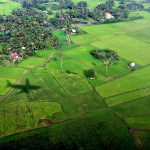Renewable energy production
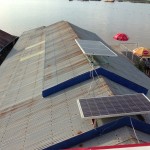
Renewable sources of energy include biofuels, solar, wind, tidal and geothermal energy. Fossil fuels such as petroleum or coal are not renewable. ...
Deforestration drivers
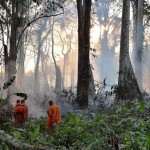
Deforestation has been one of the most significant changes the Cambodian landscape has undergone in recent decades. Key drivers of this process have been land concessions and subsequent land conversion, and large-scale illegal logging. ...
Decentralization and deconcentration
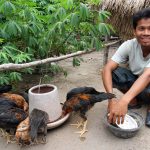
Decentralization and deconcentration are seen as “internally driven” reforms1, where the national government gradually delegates power, involving either administration or finance, to local governments to administer in their locality.27-year-old Sun Sovath supports his family by raising chickens, in Kampong Thom, Cambodia. Photo by World Bank Photo ...
Chinese aid
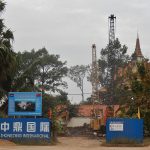
Construction of a laboratory funded by Chinese money. Photo by Michael Coghlan, taken on 10 January 2014. Licensed under CC-BY-SA 2.0China, while once being at odds with the current government, is now Cambodia’s largest development partner. The two nations have grown increasingly close in recent ...
Health care policy and administration
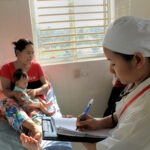
A quality and effective healthcare system that provides equal access to services is critical to ensure the well-being of any population. Both developed and developing countries strive to bring improvements to their healthcare systems. Cambodia, in particular, has undergone significant transformations in terms of healthcare ...
Administration
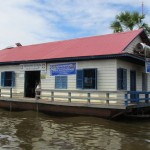
Cambodia’s sub-national administration consists of three tiers: capital city/province, municipality/district and sangkat/commune. Phnom Penh is the capital, and there are 24 provinces, 159 districts (including 26 municipalities and 12 khans), 1406 communes and 227 sangkats. ...
Private land
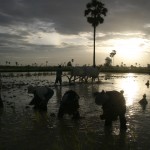
Rights to private land ownership were guaranteed in the 1993 Constitution and formally established by the 2001 Land Law. Despite an established legal framework to protect private property rights, those rights are often insecure for many. ...
Fisheries production
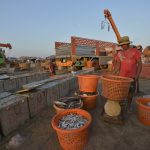
Local workers loading fresh catch to be transported to the city market at Chhnoc Trou pier, Kampong Chhnang province, Cambodia. Photo by Sylyvann Borei/World Fish, taken on 7 April 2014. Licensed under CC BY-NC-ND 2.0.Cambodia has abundant and productive fisheries. Fish is a traditional staple in the Cambodian ...
Forest classifications
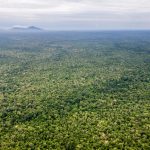
The classification of forests is set out in the Law on Forestry 2002. The law applies to both natural forests and plantations, and “defines the framework for management, harvesting, use, development and conservation of the forests in the Kingdom of Cambodia. The objective of this ...
Parliament
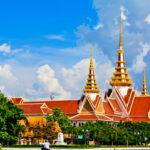
Upon the reinstatement of the second monarchy in 1993, Cambodian citizens are the master of their destiny and sources of all power. With the introduction of the liberal democracy in the Kingdom, all Cambodians at their 18 years or over, except where it is prescribed ...
Patient rights
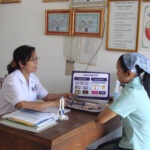
Access to quality healthcare is fundamental to enhancing citizens’ livelihoods and advancing towards more sustainable growth and development in countries all over the world. Along with increasing public demand for better health infrastructure and adequate access to healthcare services, many countries face the need to ...
System of government
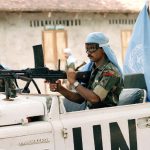
UNTAC soldiers from India patrolling the streets in Prey Veng province, Cambodia, on the second day of voting. Photo by United Nations Transitional Authority of Cambodia (UNTAC), taken on May 24 1993. Licensed under CC BY-NC-ND 2.0Cambodia inherited legal and political systems and a state ...
Elections
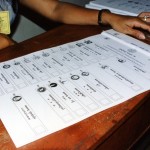
Election ballots, Cambodia. Photo by Daniel Littlewood, taken on April 20, 2004. Licensed under CC BY-NC-ND 2.0History of Cambodia’s electionsCambodia saw consecutive civil wars for more than 20 years after the coup in 1970. In 1991, parties in the conflict reached agreement to end the ...
Procurement
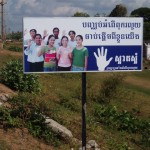
“Stopping corruption may start from us” (Khmer version on Clean Hand poster), in Kratie province, Cambodia. Photo by World Bank Photo Collection, taken on November 22, 2006. Licensed under CC BY-NC-ND 2.0In Cambodia, the activities of buying goods, construction work, repairs, and services and consultation ...
Forest cover
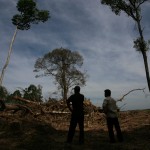
Cambodian forest cover has reduced dramatically in recent decades. In 1973 there were 13.1 million hectares of total forest, but by 2014 the total cover had fallen to 8.7 million hectares. ...
Environmental and biodiversity protection
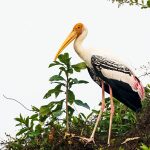
Cambodia is one of the most biodiverse countries in Southeast Asia. Biodiversity supports Cambodians ecologically, economically and culturally. It plays an important role in providing ecosystem services and economic development to achieve the Cambodian Millennium Development Goals including poverty reduction. ...
Provincial and local governments
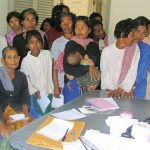
Patients are registered during the outreach screening at Vien Health Center. Photo by Community Eye Health, taken in 2006. Licensed under CC BY-NC 2.0The Kingdom of Cambodia is an indivisible state. The country’s administration at all levels and in all sectors falls under the same ...
Artisanal mining
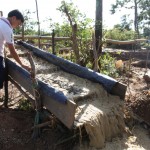
Artisanal mining is small-scale mining that typically involves individuals, family groups or small communities, often working with limited technology. The mining may be seasonal, fitted around other work such as farming. There is a large overlap between this type of activity and gemstone mining. Artisanal ...
Infrastructure
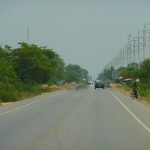
A national road in Cambodia. Photo by Pat Scullion, taken on 2 April 2010 under CC BY-NC-ND 2.0Infrastructure describes the built assets that allow a country to function, such as roads, railways, ports, airports, communication systems, electricity and drinking water distribution networks. The Ministry of ...


